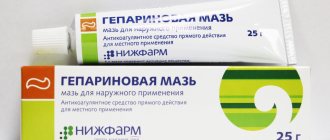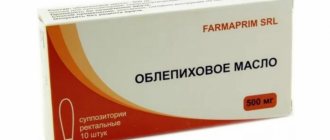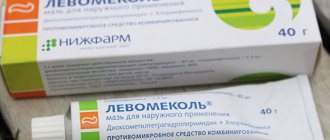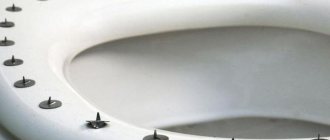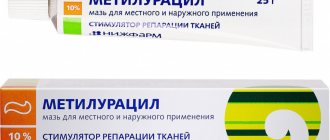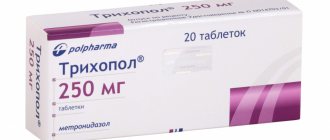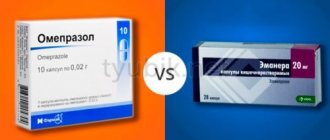Hemorrhoids can become inflamed in any person, even those who do not have a chronic disease of the digestive tract. There are many reasons leading to this condition. But most often it is provoked by eating poor-quality food, refusing sports, and prolonged sitting. This leads to inflammatory formations on hemorrhoids. If there is no treatment for a long time, periodic bleeding may be added to this condition. You need to contact a competent proctologist who will conduct a comprehensive diagnosis and prescribe the right treatment methods.
Composition of the drug
Heparin ointment for hemorrhoids is a combined direct-acting anticoagulant for external use. Liniment is a yellowish gel-like mass in tubes of 10 or 25 g.
There are only three active components:
- heparin
is the basis of liniment, capable of dissolving an already formed thrombus in a vessel or preventing its formation by suppressing fibrin, a blood protein responsible for thrombus formation; - benzocaine
is an anesthetic that quickly relieves pain; - benzyl nicotinate
is a benzene ester of nicotinic acid, which stimulates the expansion of capillaries on the surface of hemorrhoids, which leads to accelerated absorption of active heparin into the blood.
The medicinal product contains auxiliary components: glycerin, petroleum jelly, purified water, stearin, which are responsible for the consistency of the ointment and help the main components be absorbed, softening the skin.
Properties of hemorrhoid ointment with heparin
The combined composition of the drug determines its therapeutic effect in the treatment of hemorrhoidal disease, the ability to relieve inflammation, pain, resolve blood clots and heal injured surfaces.
In other words, heparin ointment demonstrates several actions at once.
Antithrombotic or anticoagulant
Heparin, which resolves blood clots, is the main component of heparin ointment for hemorrhoids, therefore the anticoagulating property of the drug determines its belonging to a certain pharmacological group of fibrinolytics.
Fibrin is the basis for the formation of blood clots. The ability of heparin to block its synthesis significantly reduces the risk of thrombophlebitis of hemorrhoidal formations. In addition, the substance inhibits the compaction of existing blood clots in the cavities and prevents their growth. Heparin thins the blood, changes its viscosity, makes it fluid, which improves microcirculation of the anorectal area, stimulates the regeneration of tissues of the anus and rectum.
Anti-pain or analgesic
The relief of pain is due to the inclusion of the anesthetic benzocaine (anesthesin) in the heparin ointment. The substance blocks the transmission of nerve impulses from receptors located in the anus to the cerebral cortex. Thus, it quickly relieves pain. With hemorrhoids, this is a very important point, since the pain syndrome significantly affects the quality of life of patients. At the same time, the itching of the anus disappears, the subjective state of a person improves before our eyes.
Anti-inflammatory
Pain, itching, risk of thrombosis - all these symptoms of hemorrhoids are caused by developing inflammation of the hemorrhoid. The use of heparin ointment for hemorrhoids reduces inflammation, pathological exudation, and swelling of the anus, since the blood flow of the perianal area is activated, nutrition and oxygen supply to the tissues of the region are normalized. Hemorrhoidal cones decrease in size and deflate like rubber balls.
Wound healing
Heparin is also responsible for tissue regeneration during thrombosis of the hemorrhoid. The substance stimulates local blood flow in the area of inflammation, restores impaired nutrition, saturates the tissues of the anus and rectum with oxygen, and activates the skin’s own regenerative abilities and mucous membranes.
The composition of heparin ointment is considered optimal for quickly relieving the main negative symptoms in the treatment of hemorrhoids.
Tablets for hemorrhoids with bleeding
The optimal tablets designed to eliminate bleeding from hemorrhoids are listed in the table.
| Medicine | Tablets per dose | Daily dose | Treatment course, days |
| Phlebodia 600 | 1 | 3 | 7 |
| Venolek in the acute phase | 3 | 2 | 3 |
| Venolek in the chronic period | 2 | 2 | 3 |
| Detralex 500 mg in the acute period | 3 | 2 | 5 |
| Detralex in the chronic period | 2 | 2 | 4 |
| Venarus in the acute phase | 1 | 2 | 3 |
| Venarus in the chronic period | 1 | 2 | 3 |
The tablets used act not only on hemorrhoids. They are effective for varicose veins and a predisposition to the formation of blood clots.
How does heparin ointment treat hemorrhoids?
Use the medicine externally. The range of action is wide: from prevention to complex treatment of a large number of diseases associated with the formation of blood clots and the development of inflammation against this background. For the treatment of rectal hemorrhoids, the use of liniment is not prohibited, but only if the doctor sees it as advisable.
Indications and contraindications
Like any drug, heparin ointment has indications and limitations, features of use, and side effects.
According to the instructions, the drug is used for:
- inflamed nodes of external hemorrhoids prone to thrombosis;
- phlebitis after intravenous injections, placement of a catheter for drug administration;
- thrombophlebitis of superficial veins, including on hemorrhoidal cones;
- resorption of subcutaneous hematomas, soft tissue bruises, tendon and joint injuries;
- inflammation of the mammary glands;
- impaired lymphatic drainage with the symptom of elephantiasis.
Heparin ointment for internal hemorrhoids is used with caution, since injury to the cones with feces and bleeding is possible. Heparin in this case will only aggravate the problem and provoke uncontrolled blood loss and anemia.
The drug prevents blood clots, so its prescription should be monitored by a blood test, which will show the number of platelets in the body. If there are few of them, it is better not to use heparin to avoid problems with blood clotting.
In addition, heparin ointment is not recommended for use in the following cases:
- damage to the skin and mucous membranes;
- pyoderma;
- erosions, ulcers on the skin;
- undercutting hemorrhoids;
- hemorrhagic diathesis;
- deep vein thrombosis.
The drug is not prescribed to infants under one year of age or to patients with individual intolerance to the components.
Heparin ointment is non-toxic and is available without a prescription, but understanding how insidious the consequences of unjustified use of the drug can be, it is better not to use it without consulting a doctor.
Side effects
To avoid any negative reactions when using the medication, it is necessary to conduct allergy testing of the ointment: apply a drop of liniment to your wrist and wait a couple of hours. If there is no reaction, you can use the medicine as directed.
Sometimes there may be:
- a slight burning sensation at the site of application (this is normal);
- allergic reaction to benzocaine (drug change required).
Otherwise, the drug is well tolerated by the body.
Is it used during pregnancy?
Pregnancy provokes hemorrhoids in 50% of all cases. Dilatation of hemorrhoidal veins occurs due to the high concentration of progesterone, the pressure of the growing uterus on the pelvic organs, which causes blood stasis and difficulty defecating. Varicose cavities lose their functional potential and require help. But almost all medications for oral administration during pregnancy are contraindicated. What remains are external preparations. One of them is heparin ointment, which prevents thrombosis.
The medicine is considered safe, but many women still have doubts whether it is possible to smear hemorrhoids with heparin ointment during pregnancy. The advisability of using the product is determined only by a doctor.
Moreover, liniment affects the blood clotting system, so not only supervision by a proctologist and gynecologist is necessary, but also laboratory monitoring during use of the drug.
There is only one rule: treatment of hemorrhoids with heparin ointment in women carrying a fetus or breastfeeding a baby is possible only if the benefit of using the medication for the mother many times exceeds the risk of negative effects on the fetus or newborn.
Methods of using ointment for hemorrhoids
Smoking is not recommended during treatment with heparin ointment
Today, there are several forms of ointment releases, which differ in volume. If you wish, you can purchase a small tube, or a large one. If you are not sure that the symptoms will go away in a short period of time, then it is best to take a larger package, since it can be stored for a long time. You can apply the ointment in two ways:
- First way. A swab is taken and generously lubricated with ointment. The tampon is then inserted into the anus. This method is mainly used when a person suffers from internal hemorrhoids. It is advisable to do this under one condition, that the hemorrhoids have not fallen out and are located inside. In fact, this is the only way to deliver the ointment to the right place
- Second way. The ointment is used externally. You need to take a small gauze bandage, spread ointment on it and apply it to the inflamed area. It is advisable to secure the gauze with something so that it holds as tightly as possible and does not slip. If we are talking about prolapsed hemorrhoids, then thanks to this method of application it is possible to achieve a direct impact on the problem, that is, on the node itself.
- It is recommended to apply the ointment after defecation, and the number of procedures should not be less than two, otherwise no positive effect will be achieved.
As for the course of treatment, it all depends on the severity of the disease and the speed of recovery. If a positive result is visible after a few days, you should consult your doctor about continuing or stopping treatment. The same should be done in the absence of the expected therapeutic effect.
Heparin ointment: application features
The instructions that come with each package of liniment describe in detail how heparin ointment is used for hemorrhoids, but still, the treatment regimen is selected individually by the doctor in accordance with the severity of the pathology, the localization of hemorrhoids and the predominance of clinical manifestations.
The general dosage regimen is presented in the table.
| Localization of hemorrhoids | Mode of application |
| Outdoor | After hygienic treatment of the intimate area, apply a thin layer of the product and rub it into the area of inflammation with light movements. You can make a compress for an hour with a gauze napkin soaked in medicine (for severe pain, place a napkin soaked in heparin ointment on the area of inflammation at night). Frequency of use – two to three times/day, week |
| Rectal | After bowel movements and intimate hygiene, the drug is administered once on a tampon into the rectum, the course duration is two weeks. It is better to carry out the procedure before going to bed; in the morning the tampon will come out naturally during bowel movements. |
| Combined | The intestines are first emptied, the anorectal area is hygienically treated, and both treatment methods are combined. |
The rules of intimate hygiene of the anorectal area, the condition of which determines the quality of treatment, are as follows:
- the intestines are emptied (if necessary, with a microenema);
- the skin of the anus, genitals and nearby tissues is washed with warm water and baby soap;
- Dry the treated area dry with a soft towel or disposable sanitary napkin.
Heparin ointment for varicose veins
For varicose veins, the drug is effective in combating heaviness in the legs, bursting pain, itching of the skin and for relieving swelling of the legs.
The popularity of the drug for this diagnosis is due to minor and extremely rare side effects, the availability of the drug and its high competitiveness against the background of the latest generation of drugs. Moreover, all complex medications that are indicated for the treatment of varicose veins contain heparin as an active or as an excipient.
To achieve the necessary therapeutic effect and alleviate the patient's condition, Heparin ointment must be systematically applied for a sufficiently long time. For varicose veins, the minimum treatment period is ten to fifteen days. The ointment is indicated for application both to the area of primary inflammatory-sclerotic changes in the wall of blood vessels, and to places that are in close proximity to the varicose trophic ulcer. Heparin ointment is effective at all stages of the disease.
As mentioned above, the ointment is contraindicated for use on open wounds, as this can cause bleeding, so you should not apply the ointment to the trophic ulcer itself. In cases with varicose veins, the application of Heparin ointment should be especially careful so as not to provoke complications. According to the doctor's instructions, the drug is applied two to three times a day. Despite the fact that heparin absorption through intact skin practically does not occur, the parallel use of indirect anticoagulants orally, heparin injections and blood-thinning medications should be carried out exclusively as prescribed by the treating doctor and under his constant strict supervision.
Do not be afraid of slight tingling and burning at the site of application of the ointment; this is a normal reaction of the body to the drug. And over time, after several days of using Heparin ointment, this effect will disappear. The ointment is contraindicated in patients with varicose veins or in cases of allergies to local anesthetics. As mentioned above, the drug contains benzocaine, which can cause individual intolerance reactions.
Is it possible to overdose
Heparin ointment is a drug with low systemic absorption that practically does not penetrate into the bloodstream, therefore it is relatively safe. Cases of overdose have not been described.
If the product is used too frequently or large areas are treated with liniment, hemorrhagic complications may occur: rashes, bruising of nodes, which manifests itself in the form of blood in the stool or the formation of petechiae - small hemorrhages on the skin, mucous and serous membranes.
There is a risk of bleeding: internal or external. Mild - do not require hospitalization; it is enough to stop using the medicine, and everything will return to normal. If necessary, it is possible to use a one percent solution of protamine sulfate, which is a heparin antagonist.
But if a person is predisposed to massive bleeding, heparin ointment can unwittingly act as a provocateur. Then emergency hospitalization and specialized care may be required.
Drug compatibility
Treatment of hemorrhoids with heparin ointment requires a careful analysis by the doctor of the feasibility of its use. Hemorrhoidal disease is treated in a complex manner, which means that the interaction of liniment with other drugs is inevitable, which with a high degree of probability can enhance the effect of some and neutralize the effectiveness of others.
Simultaneous administration of other anticoagulants or antiplatelet agents with heparin ointment significantly enhances the anticoagulant properties of the drug
, that is, provokes massive bleeding from hemorrhoids. This situation is especially dangerous when hemorrhoids are internally localized, when it is impossible to visually identify the source of bleeding and control it.
The opposite effect is achieved by combining heparin with Tetracycline, Thyroxine, ergot preparations, antihistamines (Tavegil, Diphenhydramine, Suprastin), nicotinic acid derivatives, NSAIDs (Nise, Nurofen, Ketorol). They will suppress the antithrombotic properties of the drug, its prescription will be useless. When treating hemorrhoids with heparin ointment, this is fraught with the development of thrombosis with serious consequences.
How to choose pills for hemorrhoids
For systemic therapy, along with local drugs selected by the doctor, tablets for hemorrhoids are also used. They affect the entire body as a whole, normalizing metabolic processes and blood circulation, strengthening the walls of veins and suppressing inflammation, improving the rheological properties of blood (so that blood clots do not form, but there is also no bleeding). All medications for oral administration are divided into several groups, and this division depends on the active substance in the drug.
The most effective two groups of drugs that are used for any form of varicose veins are venotonic drugs and angioprotective drugs. They can be:
- with flavonoids (diosmin, heperidin), which have anti-inflammatory and venoprotective effects;
- containing rutin - a synthetic analogue of natural flavonoids;
- containing pentoxifylline, which activates microcirculation in small veins and capillaries;
- containing plant extracts and extracts that have a complex effect on the venous wall.
On a note!
How to get rid of constipation: KP instructions
The drugs are used in the treatment and prevention of varicose veins, including damage to the veins of the legs and hemorrhoidal plexuses. The drugs have several effects on the disease - they strengthen weakened venous walls, protecting the venous walls from various harmful external factors, improve blood flow, and prevent congestion inside the vessels.
Analogs
Pharmacologists believe that heparin ointment is unique in composition and has no analogues. But in terms of pharmacological action, there are a number of drugs similar to liniment. They are produced by domestic and foreign manufacturers. The most popular drugs are:
- Heparin gel is a complete analogue of heparin ointment in composition, a direct-acting anticoagulant; it activates antithrombin III in the blood plasma, accelerating its anticoagulant effect, disrupts the transition of prothrombin to thrombin, and is used for external hemorrhoids. The cost of the drug is 170 rubles.
- Sinkumar tablets are a new generation indirect anticoagulant based on acenocoumarol, is a vitamin K antagonist, disrupts the synthesis of prothrombin, and is used for the risk of thrombosis in hemorrhoids. Price 460 rubles.
- Gel Venitan forte is a drug based on horse chestnut, has an anti-edematous and anti-inflammatory effect for hemorrhoids, resembles the effect of heparin ointment, is also indicated for venous insufficiency, and is used for discomfort in the legs due to increased stress and pregnancy. Cost – 175 rubles.
- Warfarin tablets are an indirect anticoagulant; the drug blocks the synthesis of vitamin K-dependent blood clotting factors in the liver; it is used for hemorrhoidal disease of any form. Price – 24 rubles.
- Pradaxa tablets are an antithrombic and anticoagulant drug based on dabigatran etexilate, suppresses thrombin activity, reduces inflammatory exudation, and stimulates the resorption of nodes. Cost – 1490 rubles.
- Trombless gel - for hemorrhoids, heparin ointment can be replaced with an almost complete analogue with a base of sodium heparin, the medicine reduces platelet aggregation, improves tissue metabolism, microcirculation of the anorectal area, relieves swelling, accelerates the resorption of blood clots, does not combine with NSAIDs and antihistamines. Price – 137 rubles.
- Trombless plus gel is an external anticoagulant, contains 4 active components: heparin, troxerutin, dexpanthenol and benzocaine, relieves inflammation, relieves swelling of the anorectal area, resolves blood clots, and has an antitumor effect. Benzocaine reduces the effectiveness of antibiotics and sulfonamides. Cost – 200 rubles.
- Gel Lavenum is a thrombolytic with a base of sodium heparin, available without a prescription, used for hemorrhoids of any location, not indicated for children and people with poor blood clotting. Not compatible with external tetracycline antibiotics, frequency up to three times a day. Price – 110 rubles.
- Gepatrombin ointment - based on heparin, allantoin, dexpanthenol, in addition to thromborabsorbing properties, the drug has a regenerating effect on tissues damaged by hemorrhoids. The drug has the ability to accumulate active substances in the nodes, so precise dosage is very important during treatment. Cost – 120 rubles.
- Hepatrombin G ointment is an example of an analogue of heparin ointment for hemorrhoids of any location: a drug that eliminates thrombus formation in the veins of the rectum and relieves inflammation. A special feature of the medicine is the presence of a hormonal supplement, which enhances the anti-inflammatory effect for hemorrhoids and stops the process of exudation. Price – 165 rubles.
- Gel Lyoton 100 is a heparin-based drug for external use for hemorrhoids of any location, reducing thrombin activity and platelet aggregation. Increases renal blood flow and has a hypolipidemic effect. Cost – 322 rubles.
- Geparoid Zentiva ointment is a synthetic analogue of heparin, a representative of anticoagulants with a pronounced local antihemorrhoidal effect. For complicated hemorrhoids, the medicine is endowed with the ability to provide local analgesia, which is especially important. Price – 175 rubles.
- Markumar is a new generation anticoagulant based on phenprocoumon, which belongs to the group of antivitamins K, and suppresses inflammation, exudation, and pain in hemorrhoids. Not registered in Russia, tablets can be purchased in online pharmacies for prices starting from 60 euros.
Heparin ointment during pregnancy
Heparin ointment during pregnancy and lactation is prescribed exclusively by a doctor for the following disorders:
- Varicose veins (a common disorder during pregnancy due to weight gain, swelling, and decreased physical activity).
- Thrombosis.
- Thrombophlebitis.
- Hemorrhoids (often occurs in the postpartum period due to the increased risk of constipation and strain during childbirth).
- Injuries.
- Inflammation of veins after injections.
Heparin ointment during pregnancy and lactation is strictly contraindicated in the following cases:
- hypersensitivity to ointment components;
- the presence of open wounds and/or necrosis;
- reducing blood clotting.
During pregnancy, the ointment is recommended to be used up to three times a day for no more than two weeks. The entire period of treatment should take place under the close supervision of the attending physician. If side effects occur, you should immediately seek professional medical help. Overdoses of ointment were practically not observed, however, throughout the course of treatment it is necessary to pay special attention to blood clotting. Among the main side effects of Heparin ointment during pregnancy are: allergic dermatitis, itching, urticaria, rashes. To prevent undesirable effects, a day before the start of treatment, it is necessary to conduct a home skin test for allergies. A small amount of the drug is applied to a healthy area of skin; if after a while no adverse reactions appear, the ointment can be used.
Reviews from doctors and patients
{banner_banstat9}
Doctors value the unique composition, safety, and high efficiency of heparin ointment. According to proctologists, liniment adequately replaces expensive anticoagulants, is not inferior to them in its effectiveness, and is simple and easy to use. However, it is necessary to understand that it will not be possible to cure the disease using only heparin ointment for hemorrhoids: an integrated approach is needed.
Feedback from patients confirms the effectiveness of the drug, which has not been lost over time and has not been supplanted by the release of new, more expensive medications for the treatment of hemorrhoids. It is especially convenient to use liniment at home. The undoubted advantage of heparin ointment is the possibility of its administration to pregnant women, a small number of contraindications and side effects.
There is no doubt about whether heparin ointment helps with hemorrhoids, but call it the drug of choice for pathology with any location of hemorrhoids (especially external ones), complicated by thrombosis, inflammation, and pain.
Indications and contraindications for the use of Heparin ointment
The main indications for the use of Heparin ointment are:
- Thrombophlebitis is the formation of a large blood clot that blocks the lumen of a vein.
- Varicose veins and its complications are an increase in the diameter of the lumen of blood vessels, thinning of the venous wall and the formation of “nodes” - aneurysm-like local expansions.
- Hemorrhoidal thrombosis is varicose dilatation of hemorrhoidal veins with subsequent blockage.
- Extensive hematomas, including muscle and tendon hematomas; traumatic joint disorders, including sprains and dislocations.
- Swelling, severe injuries.
- Inflammatory processes in the veins after injections.
The dosage of the drug is selected individually, based on the general health of the patient.
Contraindications to the use of heparin ointment are:
- Ulcerative and necrotic processes in the area of thrombophlebitis.
- Blood coagulation pathologies, increased bleeding.
- A decrease in the level of platelets in the patient’s blood.
- Hypersensitivity to the active substance - heparin.
- Application of ointment to festering areas and open wounds is contraindicated.
It is worth remembering that Heparin ointment can cause side effects, such as an allergic reaction and hyperthermia of the skin. In order to check yourself for an allergy to heparin, a day before using the ointment, you need to apply a small amount of the drug to a healthy area of the skin; if after a while no adverse reaction appears, the ointment can be used.
In case of an overdose of heparin, bleeding may occur, in which case it is recommended to immediately seek medical help.
Pregnancy and lactation are not contraindications for the use of the ointment, however, its prescription, dosage and dynamics of use should be under the supervision of a physician.
